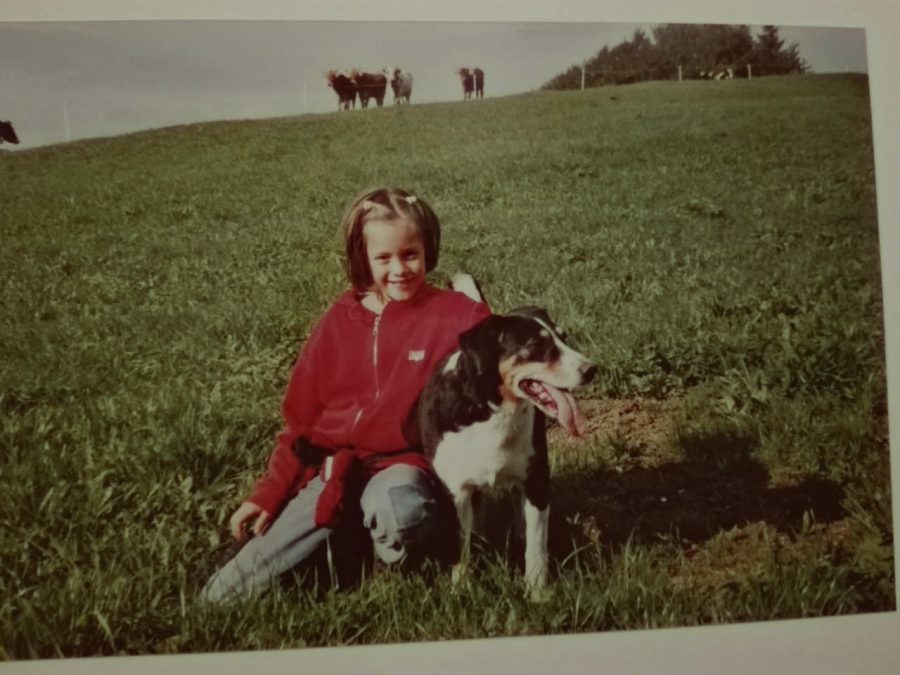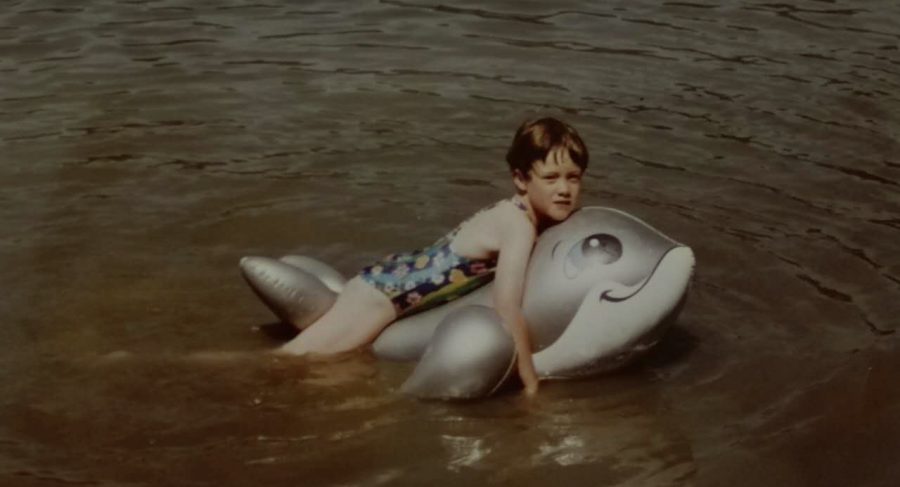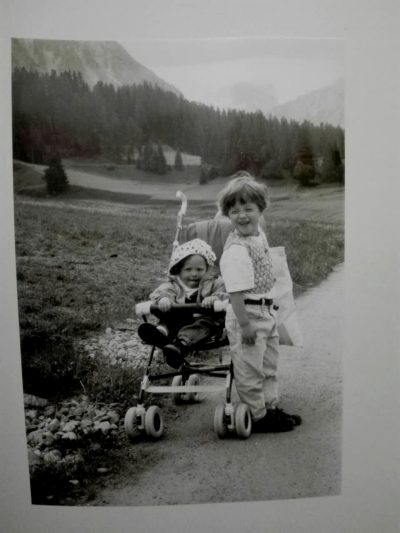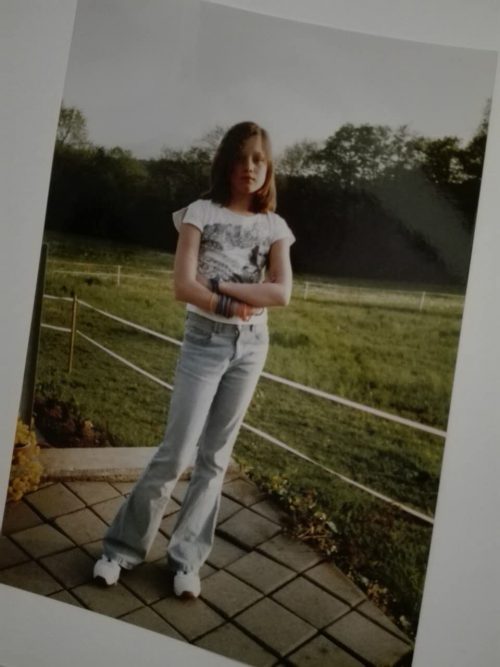I wrote the first draft of this article in the middle of the night, frantically, and determined to hold onto this crystal clear state of mind, at least until I have put all my thoughts and feelings on paper and saved it forever.
I’ve had a few of these utter moments of truth this year, more precisely, after I turned 25. Formerly meaningless and vague fractions of knowledge, experiences, and memories all come together to match like a jigsaw. The last piece of the jigsaw flicks a switch deep inside of you, and nothing will ever be like before. Because now it all makes sense, and you see things the way they really are.
For me, the last piece of that jigsaw was a particularly painful disappointment I had to experience.
I was at the office where I did my internship when I received a phone call from the foreign correspondent of the TV station I grew up with as a kid. I knew they were looking for a replacement in their Shanghai office, so I had applied for a job there, and got into the final round of assessment.
It was my dream job, and I had been preparing for the interview for weeks, read two books, thought myself how to edit with Final Cut Pro, and persuaded a film professor to teach me how to shoot, to pass the professional skill requirements. I worked night shifts to come up with a social media strategy for the correspondent’s bureau. Also, I had two master degrees from high-ranking universities, spoke four languages, and had over a year of working experience. So I was pretty confident about my qualifications.
But I didn’t get the job.
“We need someone more outgoing, who questions everything, and knows how to be bold.” During that phone call, the foreign correspondent was telling that I was nice and adaptable, but not tough enough for the job. It is a core competence of a journalist to be able to provoke, ask difficult questions, and attack the status quo. And I lacked this important feature.
The foreign correspondent was giving me honest feedback, and I had to admit that he was right
But during the past years, I also did very bold things: I moved out from my little Swiss village to travel the world as a flight attendant. I started university in another city where I didn’t know anyone. Then, during the last two years, I have moved first to Paris and then to Shanghai. To tackle my social anxiety, I started comfort zone crushing. I lay on the floor in the middle of a crowd, danced in public, and told jokes to strangers. I began to care less about what other people think of me and started to do more of what I love. To help others on the same journey, I organized a weekly practical workshop on comfort zone crushing.
How come that I was still not outgoing, not bold, not confident enough? How come that I could still not be myself in many social situations? When would I ever learn to be authentic?
Even after two years of comfort zone crushing, my primary weakness was still that I preferred to please others than to defend my interests.
Was it because of my past job as a Flight Attendant, where I had to smile and serve others the whole day? Or did the Chinese culture of respecting authority without questioning them influence me so much, after I had lived in Shanghai for one year? Maybe. But the cornerstone for my desire to develop a likable, well-behaved, non-provocative personality was laid way earlier.
When I was a kid, I knew what I liked (short hair, asking questions, and climbing trees) and what I didn’t (meat, track and field, and sleepovers). But then, school started. Suddenly, I saw myself mirrored by children of the same age. I learned what a good, likable girl was like in the eyes of most kids and their parents.

I struggled with social expectations from the start. I wasn’t willing to change myself to fit in with the others. When I tried, it just felt so wrong. As a consequence, I didn’t have any friends in primary school. Classmates bullied me for being different. Luckily, I discovered books at that time. I was OK with being by myself, as long as I could read, write and dream.
But of course, I was in lack of love. And I thought that the price I had to pay for having friends was to leave this world I built for myself and start becoming like every other girl. Puberty was the time when I became addicted to pleasing others.

I began to bow to social norms – I call it the “good girl behavioral guidelines,” and it’s a looooong list:
- Smile.
- Be pretty.
- Say thank you a lot.
- Apologize often.
- Say ‘never mind’ a lot.
- Don’t say No.
- Listen without interrupting.
- Always agree.
- Be selfless.
- Be helpful.
- Be kind.
- Be quiet.
- If you say something, make it sound intelligent.
- Laugh at other people’s jokes.
- Forgive other people’s mistakes.
- Be polite.
- Don’t swear.
- Don’t speak of sex publicly.
- Wear appropriate clothing.
- Be well spoken.
- Speak softly.
- Prepare well.
- Be professional.
- Work hard.
- Be someone who ‘gets along well with everyone.’
- Blend in.
- Work hard.
- Don’t stand out.
- Don’t brag.
- Hide negative emotions.
- Don’t criticize others.
- Return favors.
- Be generous.
- Show that you care.
- Be obedient.
- Don’t question.
- Be a good girl.
- Never hurt someone
- Don’t bother anyone.
- Don’t offend anyone.
- Don’t gossip.
- Make a compromise.
- Avoid conflict.

Following these social norms, I have slowly but surely become a coward, who smiles if someone does me wrong, just to avoid a fight.
I was the person who eats the cheese sandwich the waiter serves me even if I had ordered ham. I was the person who didn’t tell my mom that I wanted to live in China, just because I was afraid of her reaction. I was the person who’d fake an orgasm, just to avoid hurting my lover’s feelings. Yep, that’s how far I would go.
Because of these stupid “good girl guidelines”, I never learned how to find a mature balance between my own interests and those of the people around me.
It had to stop.
So I challenged myself to pick things from that list and do the exact opposite of it.
I went out without makeup. I pulled a face. I didn’t smile prettily and submissively on photos. Actually, I quit smiling altogether, except for when I felt real joy or laughter. I told a friend that I didn’t feel like coming to her birthday party. I asked my other friend why her boyfriend read that far-right magazine, and if she supported his views. I told my boss when I wanted a break and my coworker how she could help me with something without feeling bossy. I told my brother that I was mad at him and felt hurt by something he did. I accepted gifts, favors, and advantages without feeling guilty. I criticized my new employer for not reimbursing my flight tickets in several emails until they gave in. I told my boyfriend he has to stop complaining. I refused to eat the food my parents in law prepared for me I don’t actually like. I started to make suggestions first instead of waiting for others to suggest something just to adapt to their wishes.
Every day, I ceased thinking what other people want and expect from me and started thinking first of what I want. I want to keep doing, saying or thinking only what I like and skip doing everything that doesn’t feel like me. I also started saying what I think, even though it might be hurtful, weird, provocative or stupid.
And I tell you what: It makes me feel great, almost invincible. It takes a little courage at first, but as I am about to make it a new habit, I grow more and more into an authentic, confident, and independent me. But it still takes daily, even hourly commitment.
I am grateful I didn’t get my dream job at the Shanghai correspondent’s office. Without this experience, the last piece of my jigsaw might still be missing, and I would still be the good girl wanting to be liked by the world more than being true to herself.
I am about to start my first job as a foreign reporter in Beijing. I am determined to be a daring, provocative, and challenging journalist. Not to stop asking questions until I have a satisfying answer, just like I used to as a small kid.
On photos, I now look like a grown woman, and at the same time, more like my older self. Back then, I never faked a smile on pictures, just because I didn’t feel like it. I’m glad I’ve found that person again.
“Maybe the journey isn’t so much about BECOMING anything. Maybe it’s about UN-BECOMING everything that isn’t really you, so you can be who you were meant to be in the first place.”
— By Katrin —

Final note
Dear Katrin, I’m grateful I get to share your article with others. Ever since I read it a few months ago, I was impressed by the honesty of it and the thorough introspection you’ve been doing. For even doing that AND write such an open article about it, takes a lot of courage.
I met Katrin in November 2016, when I just arrived in Shanghai. I remember our first meeting very clearly. It was in People’s square metro station, where she organized her very first Comfort Zone Crushers meeting. She immediately struck me as a sweet and very emphatic girl. And brave, because despite her nerves during that first meeting, she managed to set up a huge Comfort Zone Crushing community in Shanghai. This means she’s not only been crushing her own comfort zone, but also helped me and many others to do the same. Thank you for helping us grow sweetie 🙂

* Read next: Maxwell, by Rafael Ortiz